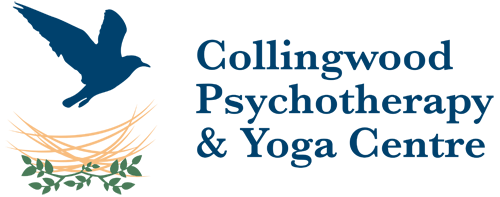Yoga Therapy

Yoga Therapy at CPYC
“Yoga is relationship.” — T.K.V. Desikachar
At CPYC, some of our therapists integrate therapeutic yoga into sessions to support psychological, physical, physiological, and spiritual well-being. Rooted in the Krishnamacharya lineage (often carried forward by T.K.V. Desikachar and known as Viniyoga), yoga therapy is a holistic, personalized approach that adapts the full range of yogic tools—movement, breath, sound, meditation, and lifestyle practices—to the needs of the individual in front of us. It’s not one-size-fits-all; it’s a relationship-centred practice designed around you.
Yoga therapy is a powerful healing modality on its own and can also deeply complement psychotherapy, helping clients integrate insights at a body, breath, and nervous-system level.
What makes this approach unique
Personalized for you
Your practice is tailored to your age, health, goals, lifestyle, and stage of life. We adapt postures and sequencing to your body—often using simple, accessible movements.
Breath-led and therapeutic
Breathwork (prāṇāyāma) is central. Gentle asana, mindful pacing, and appropriate rest help regulate the nervous system and support embodied awareness.
Beyond poses
We may include chanting or simple vocal sound, focused attention/meditation, and practical lifestyle suggestions—always collaboratively and within your comfort.
Self-empowerment
You’re an active participant. With steady guidance, you build tools you can use between sessions, fostering agency and change from within.
Focused on healing the whole person
We recognize that physical and physiological conditions often influence psychological health—and vice versa. Body and mind are not separate. This is why we address the whole person, using the lens of the pañca maya (the five layers of being):
-
Physical body (anna maya)
-
Energy body (prāṇa maya)
-
Lower mind (mano maya)
-
Intuitive mind (vijñāna maya)
-
Core essence (ānanda maya)
How we integrate yoga therapy at CPYC
-
Thorough assessment first: Before providing drawn or recorded home practices, we complete a detailed assessment of your physical, psychological, and lifestyle needs. This ensures your home program is safe, relevant, and effective.
-
In-session integration: Select therapists may weave breath, gentle movement, grounding, or focused attention into psychotherapy sessions when it serves your goals.
-
Standalone sessions: Yoga therapy can also be offered on its own as a complete healing modality, supporting physical, mental, and emotional health without psychotherapy.
-
Complementary care: When combined with psychotherapy, yoga therapy helps integrate psychological insight with somatic regulation, creating a more holistic healing process.
-
Collaborative care: We discuss options with you, set intentions together, and adapt as needs change.
What a session might look like
-
A brief check-in and clarity on what matters today
-
Gentle, personalized movement (asana) adapted to your body
-
Breath practices to support regulation and steadiness
-
Optional sound/chanting or simple meditation/focus practices
-
Take-home drawn or recorded sequences—after a thorough assessment—so you can continue your practice at home between sessions
Lineage, respect, and gratitude
Our work is inspired by the teachings of T. Krishnamacharya and T.K.V. Desikachar, whose approach emphasized adapting yoga to the individual (Viniyoga). Yoga philosophies are indigenous to India and arise from thousands of years of observation, reflection, and practice—codified in texts such as Patañjali’s Yoga Sūtras, the Bhagavad Gītā, and the Upaniṣads. We do not claim full embodiment of these profound traditions; much is cultural and language-based. Yet the tools we have studied and practiced over many years have deeply benefited us and our clients, and we share them with humility and care.
With appreciation to the teachers who have generously shared their knowledge and skill: T. Krishnamacharya, T.K.V. Desikachar, Dr. N. Chandrasekaran, Dr. Nitin, Felicia and Ante Pavlovic (Yoga Therapy Toronto), David Robson (AYCT), and Sharath Jois (Sharath Yoga Centre).
Is yoga therapy right for me?
If you’re seeking an embodied path to healing—one that complements talk therapy and honours your unique body, breath, nervous system, and life context—yoga therapy may be a supportive next step. You don’t need prior yoga experience; curiosity is enough.
Booking: Ask your therapist whether yoga therapy integration is a good fit for your goals, or contact us to book an individual yoga therapy session.
Our Mission
We support courageous humans in reconnecting with their inner wisdom and restoring a sense of wholeness -- through transformational therapy that honours the connections between body, mind, spirit, and energy. Our relational, intuitive approach helps people come home to themselves, so they can love deeply and live with self-worth, truth, purpose, and freedom.
